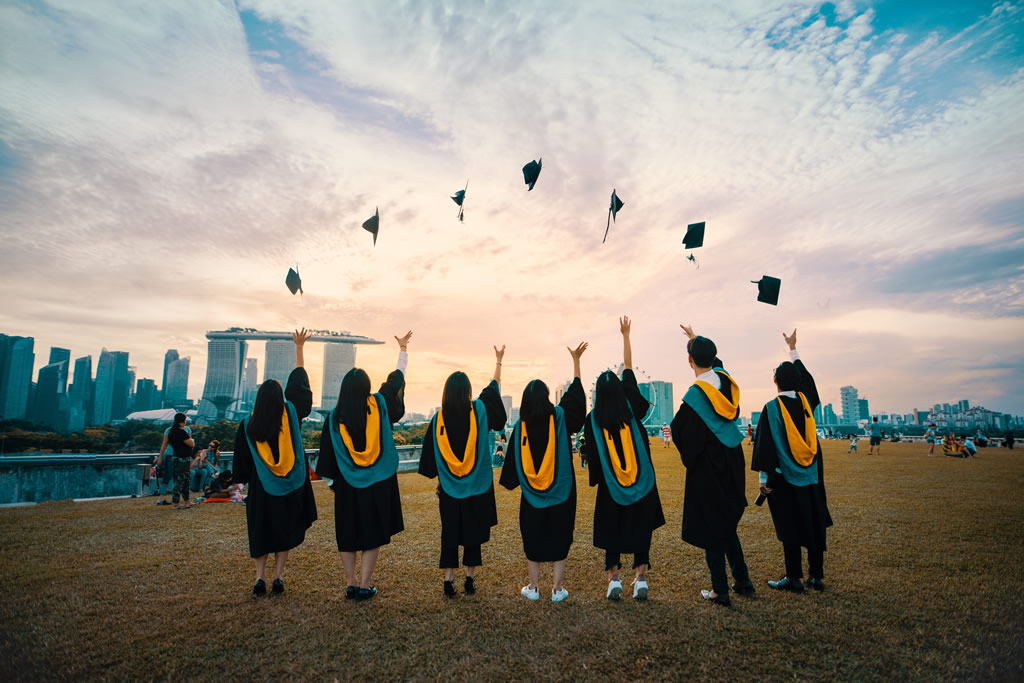Student visas require enrollment or participation in an approved full-time study or training program in the United States. The most common visas issued for this purpose are the F-1 student visa and the J-1 visa for exchange visitors.
F-1
The F-1 student visa is available to foreign applicants who wish to attend approved full-time study programs in the United States. Students must be able to show enough financial means to cover their study and living expenses during their stay in the United States. In addition, each student must demonstrate the existence of a foreign residence that s/he does not intend to abandon. Student visas are issued at the applicable consulate abroad, and are usually valid for a period that permits the student to complete one educational program.
F-1 students are not permitted to be employed during their stay in the United States. However, there are a few important and frequently utilized exceptions to this rule. The most common exception is optional practical training, which is referred to as “OPT.” OPT permits most F-1 students to be employed for up to one year prior to or after graduation. This employment must be related to the student’s primary area of study. In order to engage in optional practical training, the student must first obtain the approval of his or her designated student officer. The student officer communicates approvals to the U.S. Citizenship and Immigration Services agency, which then grants employment authorization in appropriate cases. Graduates of approved STEM programs may be eligible to apply for a two year OPT STEM extension for employment with an E-Verify-registered U.S. employer.
F-1 students may also be eligible for certain types of on-campus employment without receiving specific employment authorization from the U.S. Citizenship and Immigration Services agency. Such employment is limited to 20 hours per week, except during the program’s vacation period when employment may be on a full-time basis. F-1 students may also engage in employment that is a formal and integral part of their study curriculum (known as “CPT” or curricular practical training). If the training exceeds one year in duration, student will be ineligible for OPT.
Spouses and unmarried minor children under age 21 of F-1 students may be eligible for F-2 dependent visas. Dependents are required to demonstrate that enough funds are available to cover their living expenses during their stay in the U.S. These persons may not accept employment while in F-2 dependent status.
J-1
The J-1 visa permits participation in an educational or cultural program that is approved for this purpose. As is the case with the F-1 visa, J-1 exchange visitors must be able to show sufficient financial means to cover their expenses during their stay in the U.S., and must demonstrate the existence of a foreign residence that they do not intend to abandon.
J-1 visa status is available to a broad range of individuals, including professors, teachers, physicians, students, research assistants, non-academic specialists, au pairs, camp counselors, and medical/non-medical trainees.
J-1 visas are issued at the applicable consulate abroad. The permitted period of stay in the U.S. depends on the nature of the exchange program. Spouses and unmarried minor children under age 21 of J-1 exchange visitors may be eligible for F-2 dependent status, and spouses may be eligible to apply for employment authorization.
Of importance to foreigners who are interested in coming to the U.S. as exchange visitors is the two-year home residence requirement that may apply to certain J-1 visa holders. This two-year requirement severely limits the ability of a J-1 visa holder to apply to change his or her visa status in the U.S. to many nonimmigrant and immigrant visas, including an H-1B specialty occupation visa for professionals, and permanent residence.
Without obtaining a waiver of the home residency requirement, the affected J-1 visa holder will be required to depart the U.S. for a two-year period (which must usually be spent in their home country) before s/he may be eligible to return. These waivers are granted in limited circumstances.
